In 2011, Jan de Sterke, Jan van den Adel, Marcel van der Sluis, and Marnix van Fraassen - all with long careers in the fruit and vegetable trade sector - founded Direct Source International (DSI). Now, ten years later, they have built a reputable import business in the Netherlands that focuses on product specialization, outsourcing activities and providing added value for all chain parties.
Interviews with DSI are a rarity, but on this occasion, the current management board - Hilbert Klop and Marnix van Fraassen - reflect on the past and look to what lies ahead. "Letting people enjoy fresh and healthy fruit, that's what drives us."
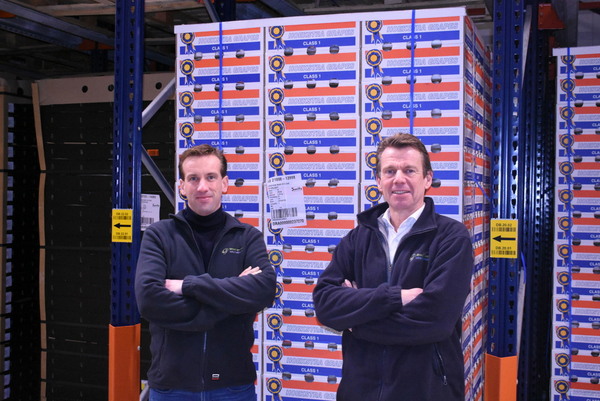
Hilbert Klop en Marnix van Fraassen
Can you take us back to when DSI started? Was it the fulfillment of a lifelong dream?
Marnix: As a true trader, through and through, you do wonder when you'll get your chance. After 20 years in the fruit and vegetable trade, I took the plunge. It was 2011, so in the middle of the [financial] crisis. I didn't want to start out on my own. Your supplier continuity isn't well guaranteed, which is why retailers don't like doing business with a one-man company either. So, I founded the business alongside Marcel van der Sluis and former colleagues Jan van den Adel and Jan de Sterke. We all have an equal share because as soon as there's division, you're doomed to fail.
We're from an era characterized by old-school fruit and vegetable trade thinking: many own premises, nobody allows their competitors to see what they're doing, and you especially don't give your customers access to your suppliers. That brought us to Direct Source, and we deliberately chose a neutral name for Direct Source International. There's no nepotism. For the last decade, we've worked hard on the company we founded together. For years, Marcel focused on pineapples but decided to step away last year. And seven years ago, Arco Verweij joined as a shareholder. There is therefore a stable group of shareholders.
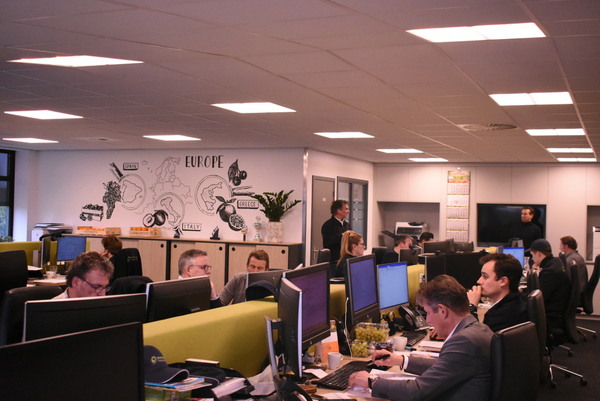
We gained much experience over the years on which to base DSI, first from Hagé and later Olympic. I learned a lot from people like Jan van den Heuvel. I arrived at Hagé in 1987 and experienced the import world's 'flying moments'. We grew to an import volume of 500 million guilders. Nothing was impossible with that great team. At DSI, we've always considered the importance of a good team. Your team has to gel; if it's not harmonious, you'll never perform well. We offer people confidence.
They're allowed to make mistakes, but they have to learn from them. The same applies to dealing with suppliers. They're our source of income, and there's no room for an arrogant attitude. We wanted to begin serving the retail sector as soon as possible, something we took with us from the Hagé days. We knew that if we didn't reach store shelves, we wouldn’t mean much as importers.
But, over the years, we've also learned what we didn't want, like having our own facilities. We outsource what we can. We did that with logistics, transport, and even in the financial area. Our packaging branch, Direct Packing Services (DPS), now has two locations in the Netherlands. And we work closely with [wholesaler] Van der Lem at a third site. There, too, we've opted for partial outsourcing. We don't know much about packaging and logistics; there are specialists for that. In recent years, there have certainly been times when we thought it would be great to have a large building and do everything ourselves under one roof. Nonetheless, we've stuck to our philosophy, which we've had from the start. You can, of course, change your vision along the way, but not for no good reason.
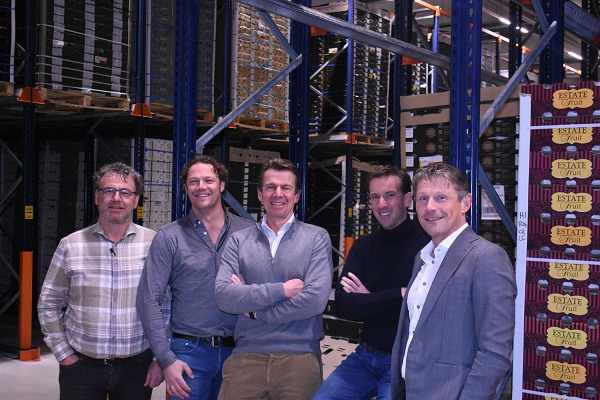
Arco Verweij, Jan de Sterke, Marnix van Fraassen, Hilbert Klop en Jan van den Adel
We chose to specialize in grapes, citrus, and pineapples, since that's where our roots lay. We began by compiling a budget. We hoped to realize €15 million in sales in the first year, but that turned out to be €29 million. So, we were off to a flying start, helped by the market conditions. For example, it was a fantastic grape year, and we received full support from well-known brands such as Hoekstra and Freshtrop. It's always surprising which suppliers show support.
Remarkably, those suppliers we'd least expected it from fully supported us right away, and vice versa. It was the same with customers. But our new company's strength lay in our years of cumulative experience and the client and supplier contacts we'd maintained. And we continued growing strongly; by double-digit percentages each year. Now, we have a great company with a solid team.
Unusually, you started out with [Dutch wholesaler] Gert Lukassen as financer.
Marnix: Gert, a long-time client, is typically always open to opportunities. He'd mentioned countless times that we were to contact him if we decided to start out on our own. When that time came in 2011 - mid-financial crisis - the banks weren't very keen on financing a new import company. So I called Lukassen, and we quickly came to an agreement. He gave us a loan, which we repaid within a year, but he always remained a shareholder.
We don't begrudge him that; without him, we wouldn't have existed. He's a capital owner and doesn't interfere with our policy. We only speak formally once a year, but informally, more often, and that relationship is good. The Lukassen company and DSI are very different; they have a much broader package and a completely different sales market. However, both companies have made professional advances.
Overseas producers sometimes take part in other importers. Why not with you?
Marnix: When we announced that we'd be starting, several suppliers wanted to join. It was very tempting because that offers an immediate secure supply. But that never happened; you have to choose between suppliers, and I'm glad we could keep that out of the equation and become private-owned. Of course, we build long-term relationships with our suppliers, but should a retailer want to use a different supplier or we advise that, it's not a problem.
Why did you choose the location in [the Dutch town of] Strijen?
Marnix: We didn't want to be in Barendrecht; we prefer being a little away from the action. At the time, many people thought we were crazy because Barendrecht was supposedly Europe's fruit and vegetable hub. But wholesalers are only a small part of our business. It doesn't make sense to base your choice of location on that small part. Then, the Smits family approached us. Those were former, then wholesale, clients of Jan van den Adel. Sandra, Carolien, and Willem Smits had since taken over the company. They stored dry goods at various locations and thought it would be nice to get back into the fruit business.
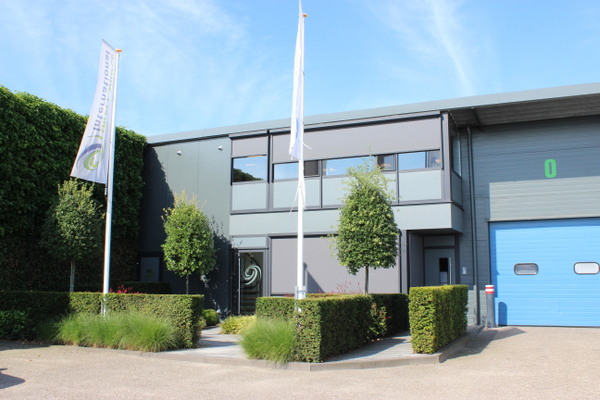
We gave them an annual pallet estimate, but that didn't quite work out. And fortunately so, because otherwise, they'd probably have turned us down. But they dared to go ahead with the numbers we'd provided, and we're incredibly grateful for that, to this day. We lost a few customers early on who thought Strijen was a bit far. But, thanks to sophisticated logistics and the Smits family's service, everyone now thinks it's great. Thanks, in part, to them, we've had room to grow, and we're the company we are today.
How is the board organized?
Hilbert: Marnix and I have known each other for years, almost since DSI started. I'm good at directing and structuring organizations and building teams. And I love entrepreneurship. We clicked, which was also immediately the case with Marnix's partners. The trade aspect also attracted me. I'd been working in the food sector for years, but in a broader sense than just fruit and vegetables. At the time, I was on the board of directors of De Menken Keuken, a production company active in such things as salads and meat products.
You build a company with a mission. For me, that means passionately selling a great product and motivating a team to work on that every day. I saw that potential in DSI right away. Plus, it had good, experienced people. What the company needed was more structure. I think wanting to improve yourself every day is a powerful motivator. You never reach that goal, and yet you can celebrate the small successes. We began with structuring, especially in the financial area. A company's expansion can be its downfall. If you don't have everything organized around the business, things go awry. I love providing that organization.
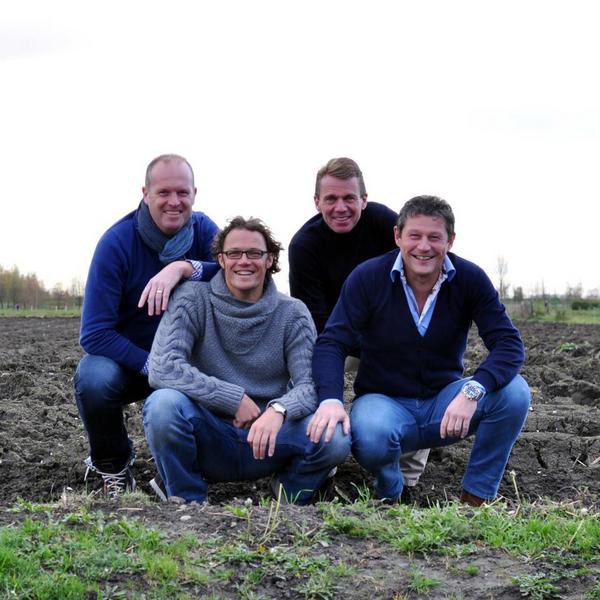
The year 2019 was a turnaround year of sorts for the company. Every company has its ups and downs. We'd have a growth period, hiring people and adding businesses. We had cooling facilities at seven different locations. But new people make mistakes, and we had to deal with failures. It wasn't so much fun anymore. So, we engaged an external party to guide us, as a shareholder group and board, to stabilize the company. We were a very flat organization. There used to be six of us in management and the rest below. If a decision had to be made, you had to call six people together. Every time. That didn't always work, which led to our current structure.
Marnix and I form the management board, both as general managers. Naturally, we have our individual areas of responsibility, but this setup ensures close decision-making cooperation. Every second month, we consult with the shareholders. The company is divided into retail, trading, operations, finance, and data management departments. Each has someone with final responsibility. This division has cleared the waters, and you can concentrate on that in which you excel. We also have a sizeable, flexible shell for things like logistics, packaging, and transportation. Then you can scale up or down very quickly if needed. That's what makes DSI such a great place.
How does one get a strong team?
Hilbert: First and foremost, everyone at DSI has to love what they do. You spend much of your life at work. You don't live to work, you work to live, and that life is also just working at the day itself. Our management team interviews everyone who comes to work for us. It's about a person's passion; you want to feel that. Someone's character reveals far more about a person than their three-page resume. Also, we don't want there to be some kind of hierarchy between shareholders or management or whatever.
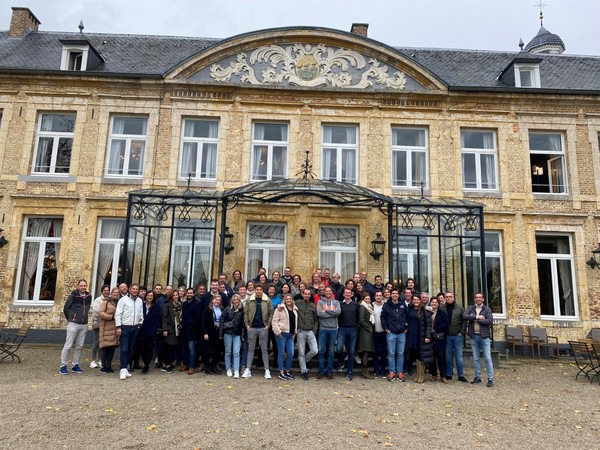
A 20-year-old employee who shows us every day they share our ambition is valuable to us. That's also why we share our strategic plan with all staff members, hold regular team meetings, and try to have plenty of fun at work. Yes, we have tough times when we have to really put our shoulder to the wheel. That means hard work and, sometimes, difficult confrontations, but that's typical of our company: we're open with each other. Then, together, you can get very far.
And we're preparing for the future as a team. The company's different divisions provide clarity and, thus, expansion opportunities. Newcomers have to want to advance; you must give them that chance. That's why we also focus on extensive automation, data analysis, a strong, professional commercial organization, and working hard on product and quality knowledge. That's vital. Our people must be proud of the company. We don't have competition clauses either. Support each other and provide enough challenges, then your people will stay. Enclosing them with a competition clause means you can't provide sufficient growth opportunities. It weakens everything and starves the team from the inside out. That can't be the goal, especially with our mission: enjoying fresh, healthy fruit.
Where does your labour policy's focus lie? Employing experienced people, or training youngsters yourselves?
Hilbert: We prefer a combination. This company was set up by people with more than 60 years of combined fruit and vegetable experience. That's different from having a few youngsters starting out on their own. Our founders have heaps of experience, so we can hire and train young people. We do that internally as ‘learning on the job'. Everyone is in one department and we don't have classrooms. Our meetings are short and intense and are only held if necessary.
So, we retain our strength, we can switch quickly, and we continue to think things through well. We also facilitate as much training as possible in areas like certifications and languages. We have a five-year plan until 2025. One of our goals is that the team be able to operate independently of the founders by then. That's crucial for the company's continuity but also incredibly interesting for everyone in the group. Our seats are available and we challenge people to grow. Our team's average age is 36. It's great being surrounded by a team that achieves greater things than you could on your own.
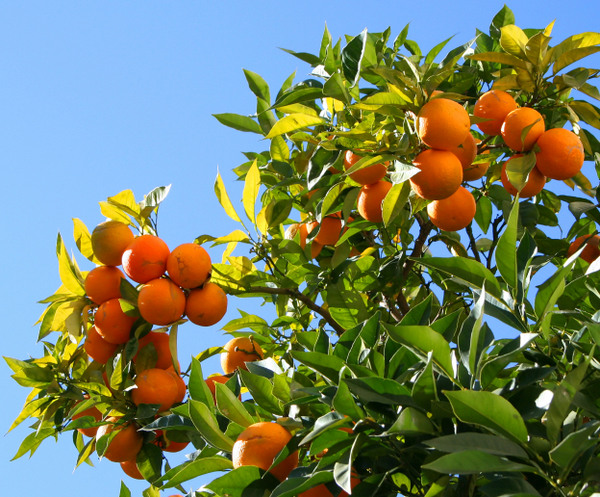
Marnix: Sometimes you, naturally, consider stopping, but for me, that's definitely out of the question. I love being involved in the import world. It demands non-stop action. You have to be honest with yourself, be prepared for the future, and create space for that. The newcomers have other ideas, and we're certainly open to that. That's something I genuinely enjoy. I see myself fulfilling a fantastic role within DSI for years to come.
Retailers want to reach the source and vice versa. What function do you fulfil as importers?
Hilbert: To fulfil a function in this chain, you must provide added value. Importers, as we know them today, will no longer exist in five years, perhaps even sooner. We took the step two or three years ago to build a chain in which retailers are in direct contact with growers. We no longer stand in between but alongside them. That's the crux, but we've done so in such a way that we contribute our know-how. We're now doing that with several retailers. They've realized that if they have to start sourcing from our disciplines, they have to deal with developments such as varieties and weather extremes. They can't do that themselves.
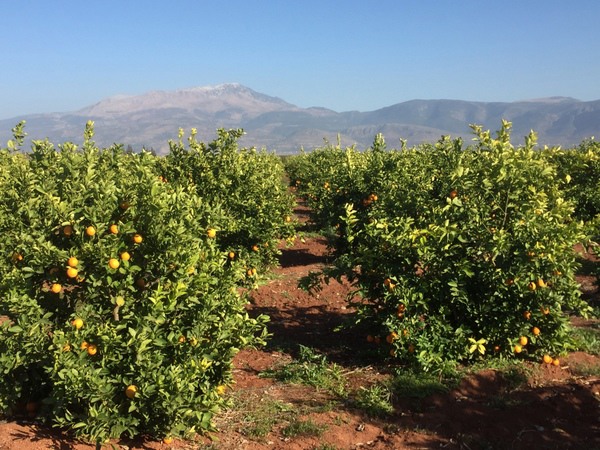
Our added value lies in service provision. And, with us, that goes a long way. This added value isn't, as in the past, about taking risks and importing a lot. It lies in the added value activities. That's how you prove your mettle. Not only in the field of sourcing but also concerning, say, packaging. We've built a packaging space to do as much of the client's final packaging as possible. Initially, the idea was to offer packaging services to third parties too, but the area was chock-a-block within six months. That's why we opened our second location in Moerdijk last month, where we've been working with our service partner, VDH, for some time.
Do supermarkets often trigger you, for instance, regarding new varieties, or do you lead in that?
Marnix: It works both ways. Retailers generally want a little of everything, but it all has a price and doesn't always suit everyone. Then you can't always carry the new varieties because the growers also want to get paid for them. Nonetheless, gaps are increasingly opening for demonstrably better varieties and people are keen to invest in these in order to stand out. That's a terrific development. For years, price was the most important thing; not anymore. More and more people are selecting items based on breed, size, quality, and periods of the season. For that, you need customers who are open to sparring but who also dare to put their money where their mouths are.
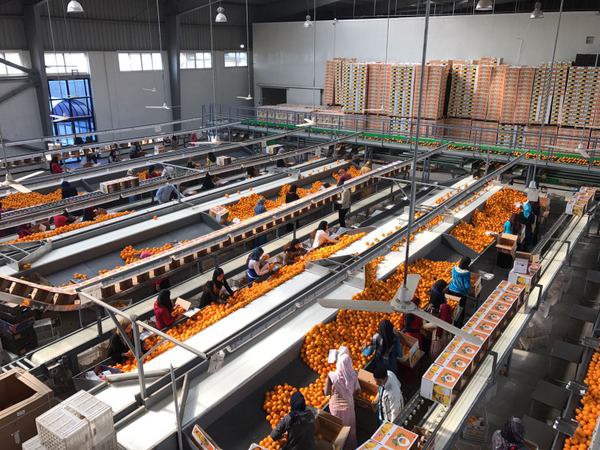
You were a CO2 Correct launching partner. How did that go?
Hilbert: Well. Sustainability permeates our entire company. We can't cultivate grapes in the Netherlands, so we have to import them from all over the world. But we do want to organize the entire chain as sustainably as possible. That's why we've joined SIFAV. CO2 Correct was immediately met with wonderful reactions from both retailers and consumers. The CO2 discussion is a huge issue within retail, but we, as importers, also have to deal with climate change every day. The climate has been terribly volatile in South Africa and other countries in recent years.
The Egyptian grape season used to start in week 20, no sooner, no later. Probably not this year. That does make you aware of your impact on the climate. We can make a difference. Of course, as a company that wants to make money with a good team and a nice product. However, we can do something extra, thanks to our global network. That doesn't make us an Eosta, but we do it our way. Our mission is to enjoy fresh, healthy fruit. That's our top priority. You do that, along with your suppliers, clients, team, and the general public. But you also get to enjoy it yourself.
But, grapes selling for €1,99 per 500g punnet at retailers - is that sustainable in the long term?
Marnix: If VAT dropped to 0%, yes. Though, that's only 9%, which will soon be eaten up by inflation. But it's a fair question. Everything is becoming more expensive, and shoppers will soon have only a certain amount of money to spend. Our advantage is that grapes and citrus are at the top of people's fresh produce grocery lists. But, that’s at the expense of something else. Take the Indian grape season that has now started. India grapes aren't the tastiest, but because they're somewhat smaller, tougher, and firmer, they're the most stable, quality-wise.
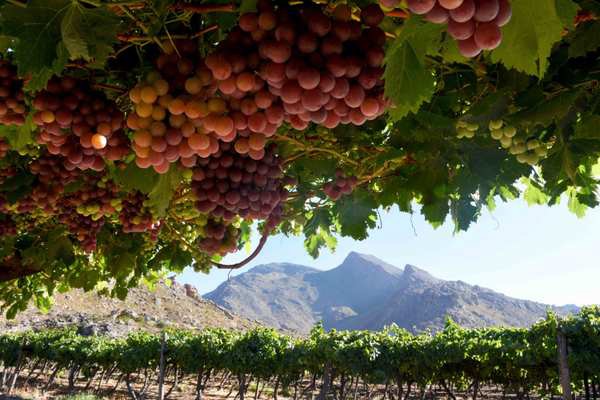
They generally keep well and can be easily transported and stored. Every year, Indian growers were satisfied with x-cost and exported significant volumes at competitive prices. But a few years ago, a container cost $2,500 to ship via ocean freight. This year, it costs $7,500 to import a container of grapes. That equals about €2 more per package. These are other net costs too, which must all be passed on. In other years, from March to May, Indian grapes were even being sold for €0.99. That's no longer feasible; or someone will have to pump a lot of money into it.
Hilbert: The excessive container fees will drop eventually, but the world's population keeps rising, as does global consumption. As long as that continues, prices will be under pressure. Wages in our source countries are climbing too. Will the €1.99 price hold up in stores? No store prices remain unchanged forever. We have to ensure that besides the 'common products', we surprise the market with new, unique types and packaging, such as combinations with other articles. We're working hard on that. These can be flavour innovations, but also, on the grower's side, in yields or cultivation techniques. Think of natural thinning, so pickers don't have to harvest fields so many times. In the end, the only question is: what do consumers want?
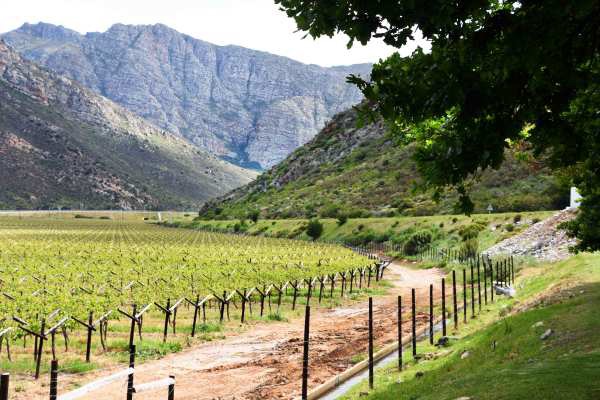
What do you think of people increasingly demanding local fruit and vegetables?
Marnix: It's fantastic! As importers, we deal with fruit that simply can't be cultivated in the Netherlands. If grapes could be grown here in abundance, it would threaten our existence. But I think it's wonderful that local growers are being promoted. If it's at the expense of our volumes, so be it. At the same time, we also know that because we access all those overseas countries, hundreds of thousands of families survive off fruit exports.
The retail sector wants to move toward less plastic. What is your stance on this discussion?
Hilbert: We feel exactly the same. Where we can, we get rid of or reduce plastic. That's also why, last year, we decided to go for top sealed packages. We weren't keen on this until the summer of 2021. We were true clamshell fans. Nevertheless, we decided to switch, as top sealing means a 15% saving on plastic. It will be hard to do away with plastic altogether for some items. There is, however, a counterpart to plastic: waste.
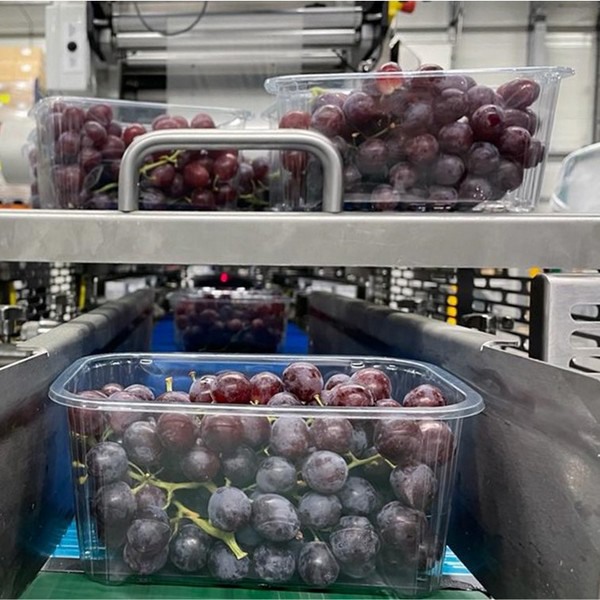
We know that switching to cardboard, bags, or loose packaging increases the losses throughout the chain. That's also why we're focusing on sustainability around plastic as a whole. And we're actively looking for alternative packaging ideas. We joined the innovation platform Brave New Food 18 months ago. We participate very intensively in the sessions where companies present new innovative ideas. As a result, we made contact with someone whom we’re now talking to about extending citrus' shelf life.
In all those years, haven’t you been tempted to carry other products?
Marnix: The market increasingly demands specialization. It's good to have specialists in this industry, too; it pays off. As tempting as it is, you can't just do something on the side anymore. At times, we also seemed to be a vegetable store, but we've chosen to genuinely refocus, in our case, on grapes and citrus. We still carry some service items but now focus entirely on our strategic product groups. If you choose to do that, you have to set up a dedicated team. We've also divested pineapple as our main product. This product did quite well in the first few years, but we've recently had to sell these at such low prices; we decided to bid it farewell. We specialize in grapes and citrus.
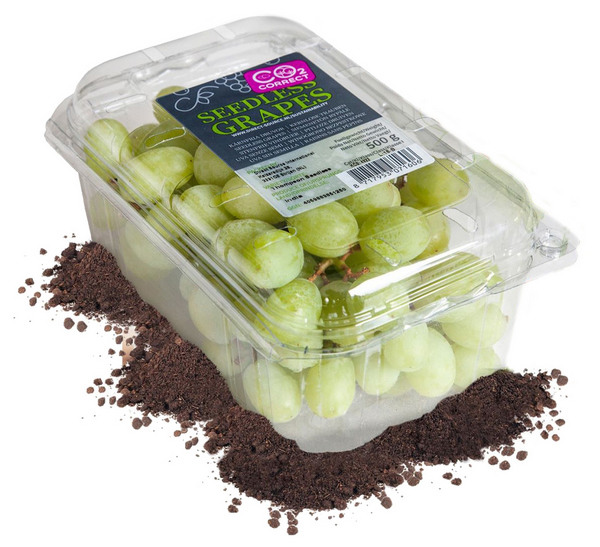
And, with Anthon van Doorn and Chris Hirdes, we have a product specialist in each of these product groups. They coordinate the imports and keep in touch with people like importers, account managers, and QC. A new competitor will, no doubt, emerge in the coming years, but I'm convinced the market will reach a turning point. I think the time of many start-ups in our business has passed. Over the past 20 years, many parties have started up, taking advantage of the abundance of available trade without importing themselves. But costs are rising, and risks are skyrocketing. The volume coming in is, thus, far more limited, and costs are enormous. If you don't have a specialty or program, it becomes difficult.
What are your top sales countries?
Hilbert: The Netherlands is good for half our sales, especially in retail. The rest goes all over Europe, particularly to Germany, France, Belgium, and the former Eastern Bloc countries, and to a lesser extent Spain and Scandinavia. Sales to the UK were somewhat higher but have shrunk significantly due to Brexit. With all the import duties the Brits have to pay, the products have become more expensive, so those exports have plummeted.
That large Dutch retail share limits the number of buyers. Isn't that risky for business?
Marnix: There are indeed a limited number of retailers in the Netherlands, with occasional drop-outs too. But, because of our specialization, we, nevertheless, remain in demand. Many purchasing organizations do 80% of their own sourcing and buy the remaining 20% from us. They prefer specialists, so we're often at the top of the list. That's how we achieve those 50% sales in the Dutch retail market.

The big challenge for us and the entire sector is the many links in the chain. There are small-scale growers and exporters who collect products from all those growers. Then there are the ports with often poorly-organized infrastructure. And delays have become commonplace. We're great at optimizing the supply chain. It helps that we know the growers personally, travel all over the world, and don't rely on all kinds of third parties. The chain should, however, broaden in the future.
How important are wholesalers to you, sales-wise?
Hilbert: Sometimes more important than we realize. We import several brands and varieties that are very popular on the wholesale markets. But the number of wholesalers is noticeably decreasing, so we can't pin our future on them. At the same time, growers can't only grow those sizes and varieties that are suitable for the retail channel. By finding outlets for these, we not only relieve the customer but also our supplier.
Over the years, Direct Fresh International, Global Fresh International, and FairConnection, among others, have started under your banner. Is there any synergy between these companies?
Marnix: Direct Fresh International (DFI) came about because people, who were enthusiastic about our way of working, came knocking. It boosts your confidence when those people can get something going. We then support them with our resources, software, and product knowledge. The DFI team has a melons and vegetable background and focuses their sales on Scandinavia. In that sense, they were really complementary.
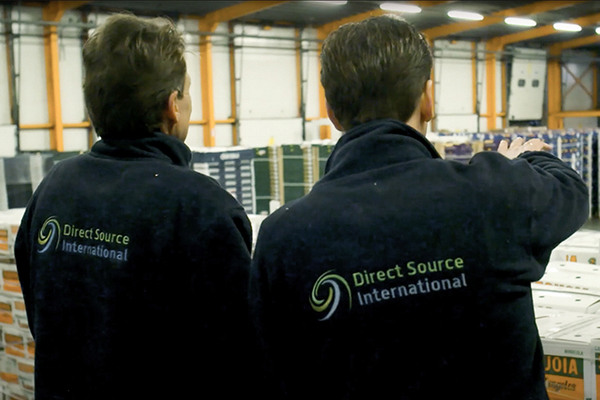
We set majority ownership as a start-up condition, with the possibility of them taking over at a later stage. The idea behind this is to not keep talent all to yourself but to give them room to grow. It's much more fun to make plans together than for everyone to continue independently. We'd rather deal with co-workers than competitors. I must say it's been great seeing others having the same experience we did in 2011.
FairConnection and your company work with some of the same items. Are you then not in competition?
Marnix: That was, of course, something of a discussion point, initially. But we knew Paul Postema and Frank Maas would be starting their own business at some point. So, it's better to do it together. And FairConnection does much more day-to-day business than DFI. But why fear that? We no longer believe in the old system of locking the warehouse, so someone doesn't steal your brand. In fact, a couple of times a week, we ask the FairConnection team to join in price alignment discussions during our sales meetings.
There’s enough room in the market for the both of us. There's plenty of synergy too. FairConnection is much stronger than we are in Peru, and we make use of that. On the other hand, we're stronger in citrus, and they can draw on our trade flows. And that's not even mentioning all the things you can do together regarding trade. But it's new for us to dare to be open to each other. You must never violate those agreements; then it's all over.
Would you consider more similar partnerships?
Marnix: Never say never. But I'm not expecting that anytime soon for the Dutch market. Global Fresh International does, however, have a branch outside Europe where we're currently making great strides. Initially Arie van Helden and my son, Maarten, ran GFI. However, Maarten said, since all the trade was being sent directly to buyers, he missed working with the actual fruit. So, he's now working for DSI again. It's not a straight line to enter the Asian market; that has its challenges, which is understandable. The Netherlands is your home market; you know how things work. But, sometimes, you have to struggle a little; that's part of doing business.
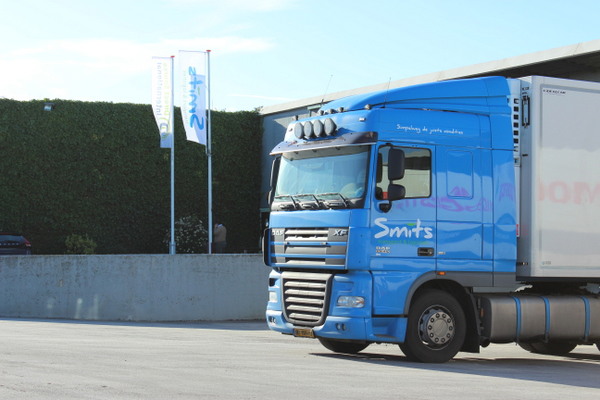
In 2014, we tried getting into the old East Bloc countries. After only two months, Putin pulled the plug, and we never went back. That's absolutely not the case with GFI. But after two years of start-up and seeding, the pandemic hit in March 2020, which is still having an impact, even now. If we want to go to Hong Kong, we first have to spend three weeks in quarantine, while Asia is precisely where you want to be to build up our business. That's why we're being quite cautious now. We want to have a presence in the Asian market, and we can mean a lot to our suppliers there too. Many Peruvians have started in Asia. However, plenty of suppliers in Africa want to enter that market with our help. A few billion people live in Asia, so there are opportunities abound."
Jan van den Adel and Jan de Sterke are two of Direct Source International's founders. Arco Verweij joined the team in 2014. All three are shareholders. What does DSI mean to them?
Jan van den Adel: "I started at Hagé in 1990 and have always worked with Marnix, which is unusual. DSI's first few years were like a childhood tale, one big adventure. Fortunately, we've not lost that bravado completely. We’re very professional, but also very down to earth. It's crucial to us to be in the team's midst. It's vital to support and complement each other, and, obviously, it helps that we progressed together. And for customers and suppliers alike, it's reassuring to know we'll be there for them in the years to come."
Jan de Sterke: "With DSI, we've managed to bring what we've always stood for to fruition. We had a dream of working together as a team to create a company that not only unburdens suppliers and clients but that benefits everyone too. It was great to be able to ship pineapples from Costa Rica to Russia within the first month of our existence. We lived up to our name from the very beginning. And when the orders came streaming in when the pandemic broke out, we could prove to our suppliers and (retail) buyers that we were there for them. Our specialization means we possess a wealth of information for all chain partners in one place.
Arco Verweij: "We all come from companies where you could, occasionally, delegate. That allowed you to do only those things you considered yourself good at or enjoyed. Here, I had to figure a lot of things out for myself. But when DSI crossed my path, I didn't have to think long about it. It's somewhere you can put all your work, knowledge, and skills into, and I, as a food lover, enjoy that immensely. Even though I've been at this for a few years, it's never boring, and every season and year brings new developments. In recent years, those have been especially rapid. You have to keep up every day. But it's the company's team spirit that has truly pushed it upward."
 Direct Source International
Direct Source International
+31 (0)6 28 29 37 27
info@direct-source.nl
www.direct-source.nl
